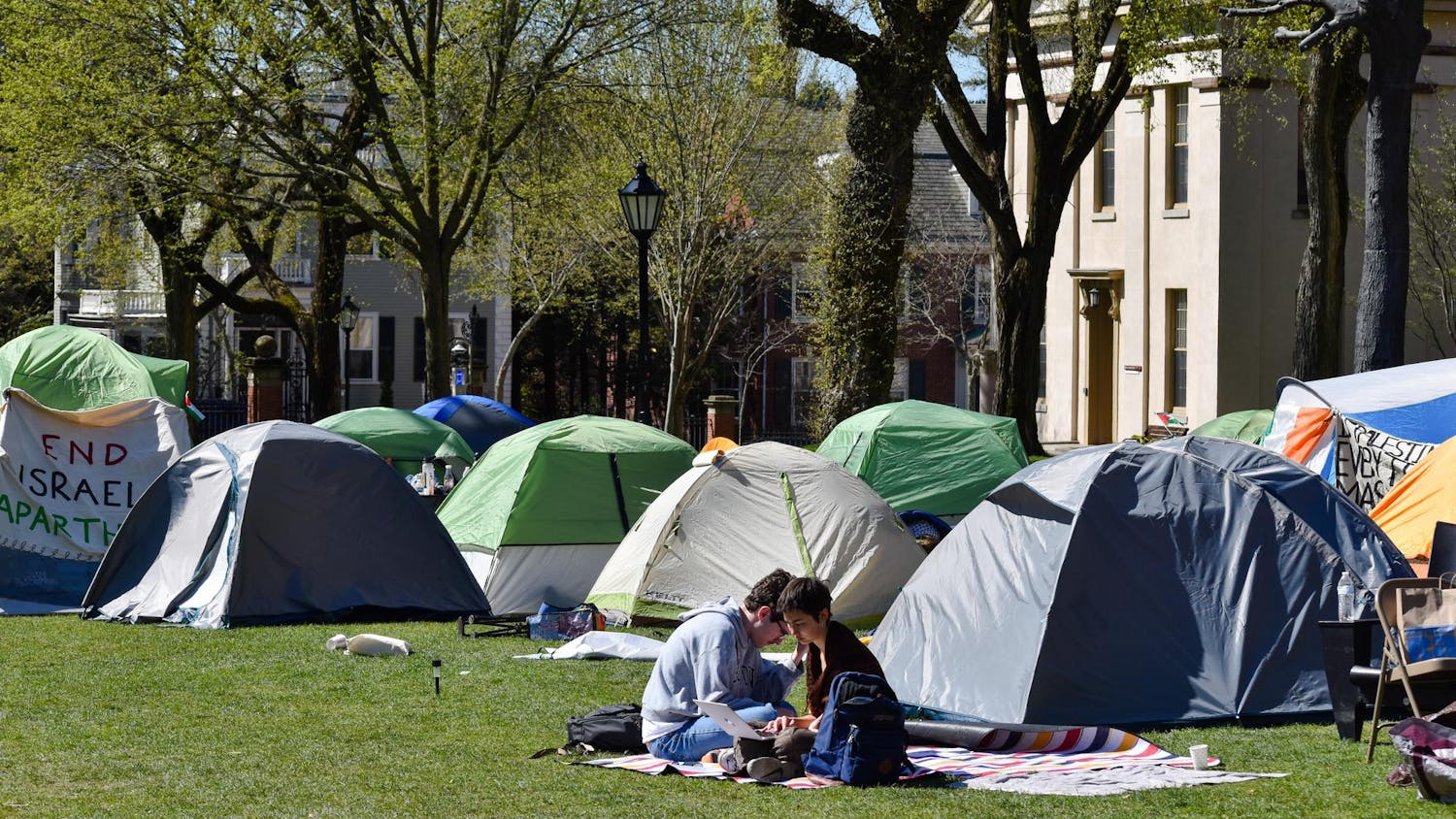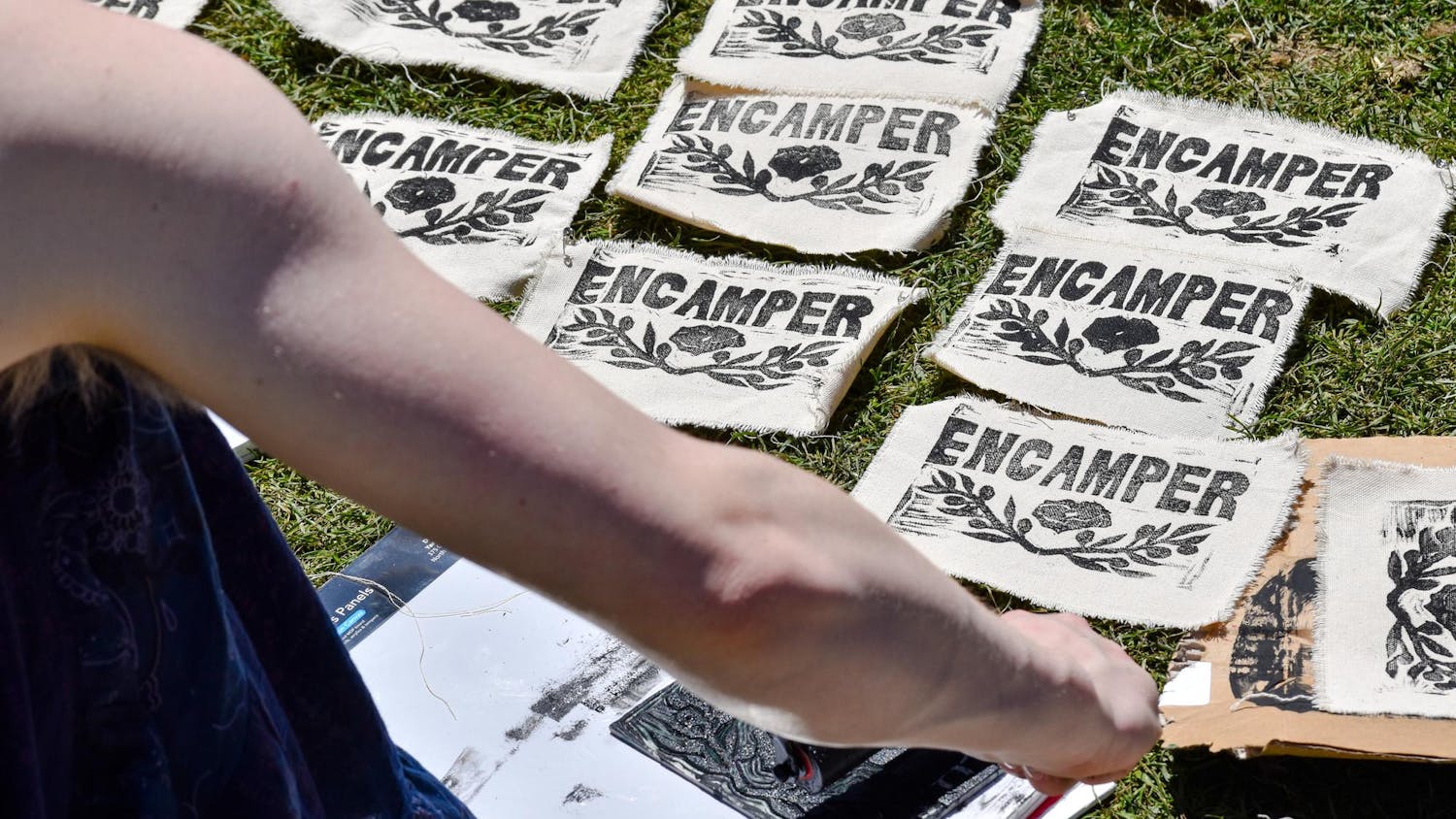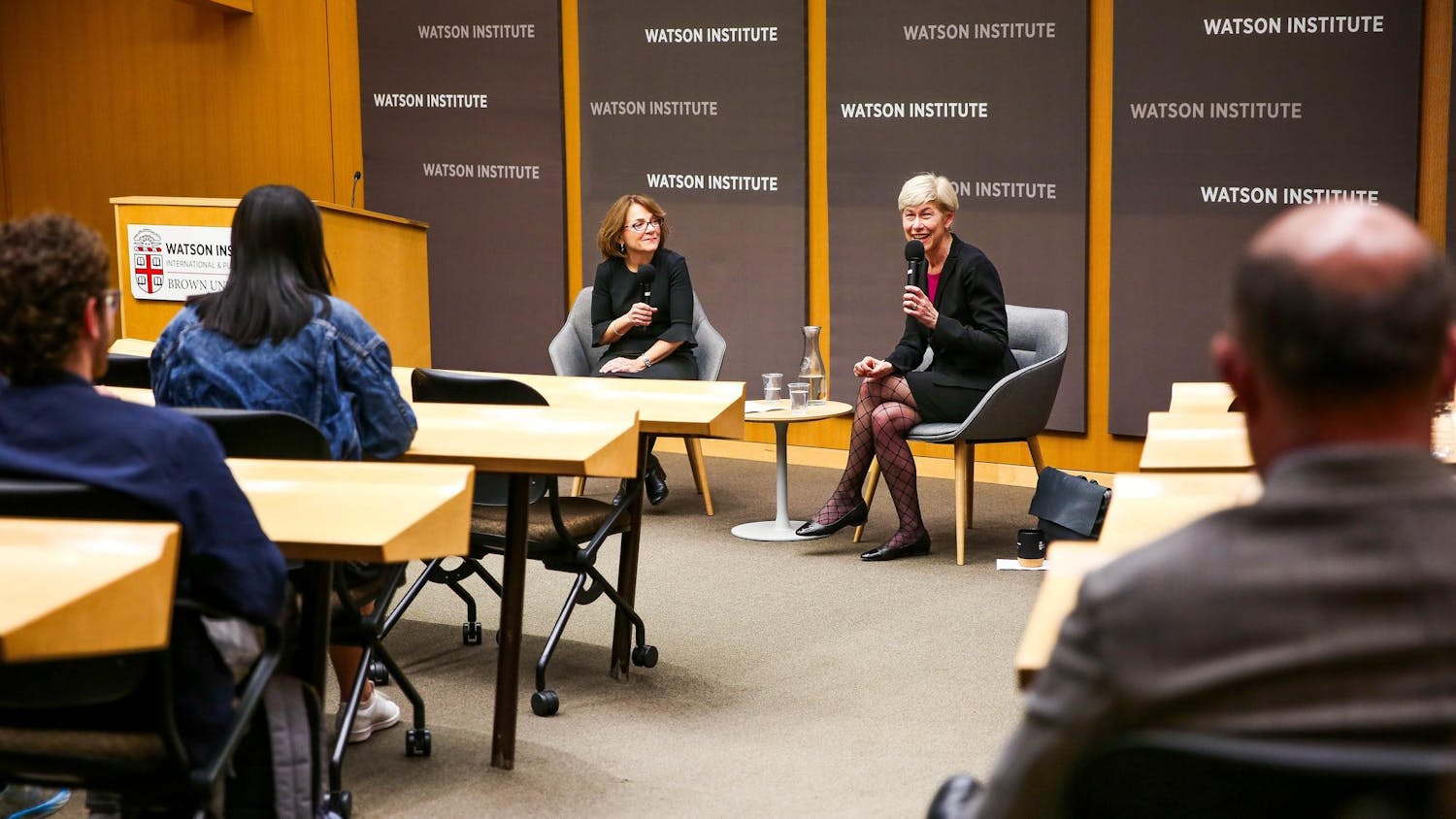Grasping at the Root, a newly-formed abolitionist coalition at Brown, recently launched the Campaign for Communities Without Policing, which raises demands to address carcerality, white supremacy and financial practices at the University.
The coalition’s name, inspired by a line from Angela Davis’s 1987 Spelman College speech, reflects its focus on addressing the root causes of racial and economic injustices, said coalition member Justin Lang GS.
Grasping at the Root was created after graduate students from multiple University departments, including Sociology, Africana Studies and English, sent letters over the summer in support of the Black Lives Matter movement to the University administration.
Around the same time, students from previous and ongoing campaigns such as Brown Divest, Brown Students for Justice in Palestine and Warren Kanders Must Go, in addition to leaders from student groups like the Black Student Union and the Graduate Labor Organization, started meeting and drafting demands.
Members of Grasping at the Root argue that the University's financial and investment practices create and perpetuate the conditions that leave Black and other marginalized groups on and off-campus vulnerable to violence and harm, according to the coalition’s mission statement.
The campaign’s first set of demands addresses the University’s campus policing apparatus, a system “inseparable from the broader carceral landscape of the city of Providence and the entire state of Rhode Island,” according to the coalition’s website.
In order to directly respond to calls from some local community members and activists to defund the police, the University must abolish Brown’s Department of Public Safety, Lang said.
What would replace DPS is of tantamount importance to the coalition. Abolition is “not just about removing things, but also creating things,” Lang said. Following the abolition of DPS, the coalition would want to divert funding that would have gone to policing and surveillance toward community organizing and collective healing.
Calls to defund police departments bring attention to the importance of evaluating the role of police on college and university campuses, Associate Professor of Sociology Nicole Gonzalez Van Cleve, who is not affiliated with Grasping at the Root, told The Herald.
“Carcerality in a university setting a lot of the time means policing campuses to keep student communities isolated and self-contained,” she said, adding that the “carceral world” has, in the past few decades, extended to more facets of everyday life than just policing and prisons.
A carceral state, she said, adopts the mindset of handling most social problems, including housing insecurity and mental health issues, through police action.
Imagining solutions to campus safety without officer involvement does not entail “lawlessness on campus,” Gonzalez Van Cleve said. But, it does mean “rethink(ing) how we allocate resources.”
Solutions the coalition suggests include funding mental health and disability training for Emergency Medical Technicians, creating and funding a team of peer-led crisis teams to be deployed on mental health calls and funding support programs for survivors of sexual assault.
“We certainly acknowledge and understand the important questions being raised about policing in the 21st century,” DPS Police Chief Mark Porter wrote in an email to The Herald. “Our focus in the Department of Public Safety is protecting the safety and well-being of all students, faculty, staff and community members in partnership with stakeholders both at Brown and in the local community.”
Porter also wrote that he is open to student input on DPS’s approach to policing.
The campaign’s second set of demands calls for a “restructuring of (the University’s) financial systems,” Grasping at the Roots member Tamara Rudic ’21 said. These demands include calls for the University to pay commercial real estate taxes and invest $10 million in low-income housing development.
As a nonprofit institution, the University is largely exempt from paying property taxes to Providence, but has an agreement to make voluntary payments in lieu of taxes. In fiscal year 2019, the University paid $6.4 million in PILOT payments, up from $4.38 million in fiscal year 2018. According to an estimate from 2012, the University would owe the city about $38 million a year if it paid commercial real estate taxes on its properties.
Increasing transparency about the University’s investments, severing ties with Warren Kanders and repatriating Indigenous lands and objects are also included in the campaign’s demands on money, dispossession and shared governance.
The campaign’s final set of demands calls for the fostering of an academic community that actively works against white supremacy on campus, in part by implementing two Diversity and Inclusion Action Plan course requirements for undergraduates in addition to programs to increase the recruitment, enrollment and retention of Black students.
On June 15, President Christina Paxson P’19 announced several updates to racial justice initiatives at the University in light of the murder of George Floyd. These measures included an initiative from the Admissions Office to “intensify outreach efforts to attract and recruit more African American/Black undergraduate students to Brown with the goal of admitting a more diverse student body.”
Grasping at the Root also seeks funding from the University for a series of mandatory first-year orientation workshops and an annual faculty training designed and led by members of the coalition.
“When community members on campus or student organizations have concerns, we engage with them if and when they raise those concerns directly — comments through the news media in response to lists of demands are not the right means for productive discussion,” wrote University Spokesperson Brian Clark in an email to The Herald.
Since releasing their demands, members of Grasping at the Root have hosted teach-ins and workshops on abolition, collective healing and Black feminism. The coalition has partnered with student groups and members such as the BSU to organize these workshops.
BSU Co-President and representative for Grasping at the Root Daneva Moncrieffe ’21 worked on developing the coalition’s demands over the summer. She emphasized the importance of educating the campus community on abolition: for Moncrieffe and co-president Lauren Wilson ’21, Grasping at the Root provides a pathway for the BSU to become “more politically involved” and further engaged in abolition, she said.
Lubabah Chowdhury GS, a member of GLO, a graduate student employee union that advocates for graduate workers’ needs and protections, has worked with Grasping at the Root alongside other graduate students from GLO’s social justice working group.
Members of GLO have worked on identifying stakeholders in policing and prisons in Rhode Island and developing the coalition’s social media presence.
“We don’t see the issue of racial justice as being separate from the issue of economic justice,” Chowdhury said. “Those issues are very much intertwined.”
Correction: A previous version of this article stated that Grasping at The Root is advocating that EMS be dispatched for mental health calls. EMS already attends these calls. The Herald regrets the error.
include funding mental health and disability training for Emergency Medical Technicians, who would be deployed on medical and mental health emergency calls instead of DPS, in addition to funding support programs for survivors of sexual assault.

ADVERTISEMENT




